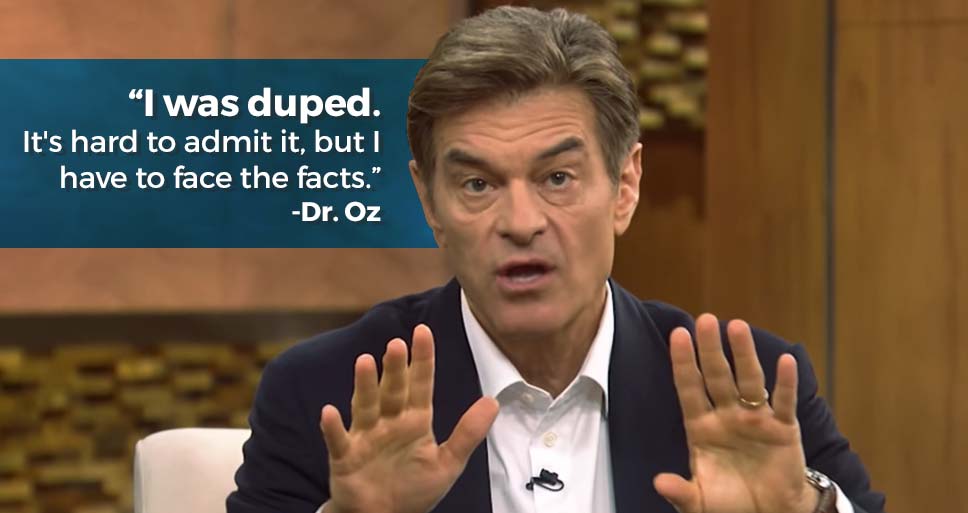Dr. Mehmet Oz, better known as “Dr. Oz”, is more than just a TV personality. Dr. Oz has been a professor at the Department of Surgery at Columbia University since 2001. He directs the Cardiovascular Institute and Complementary Medicine Program at New York-Presbyterian Hospital.
Dr. Oz has been practicing medicine for over 30-years and has likely prescribed hundreds of thousands of pills to his patients; if not millions. Dr. Oz has finally realized the impact of some of these prescriptions, “For years, we’ve used opiates to treat pain and today we are in the throes of an addiction epidemic.”
Specifically, the Opioids that Dr. Oz and his colleagues have prescribed over the years are now the number one killer of adults under 50. Now, Dr. Oz is apologizing, “I was duped. It’s hard to admit it, but I have to face the facts.”
“About twenty years ago, my colleagues and I were sold a bill of goods on a new strategy to treat people suffering from chronic pain. Opioids were the answer, and we were led to believe that not only were they effective, but that they couldn’t be addictive. Unfortunately, it took a national emergency to realize that the quadrupling of opioid prescriptions that resulted from these teachings was actually a problem. Not only are opioids in fact highly addictive, according to the CDC, there is actually little evidence that they are even effective at relieving chronic pain.” – Dr. Mehmet Oz
Astonishingly, unlike the majority of his colleagues, Dr. Oz is not standing complicit any longer. In fact, he actually offers a solution. In a shocking change.org petition, Dr. Oz calls on the government to look into medical cannabis as a solution to the opioid crisis.
“I believe medical cannabis could do just that and I’m calling on the federal government to fund the research we need to prove it. — Studies already suggest that states with medical cannabis laws have a 25 percent lower mean annual opioid overdose mortality rate compared with states without medical cannabis laws.”
Click here to help Dr. Oz petition the National Institutes of Health and President’s Commission on Combating Drug Addiction and the Opioid Crisis.

